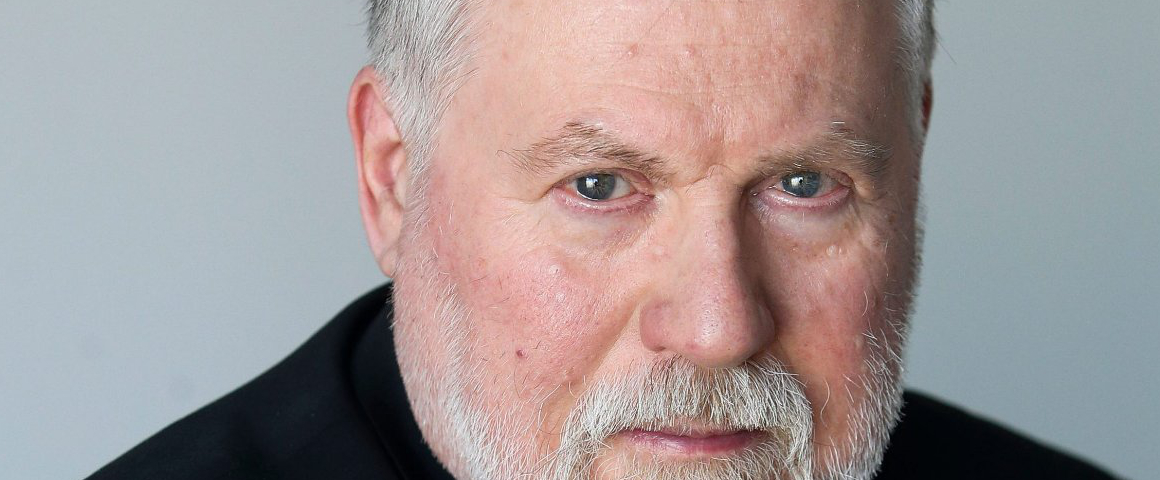By Cam Scott
On August 17, Ottawa announced two new appointments to the Senate, filling longstanding vacancies in the prairie provinces. For Saskatchewan, Prime Minister Trudeau appointed Tracy Muggli, Executive Director of St. Paul’s Hospital in Saskatoon and a two-time Liberal candidate for Parliament. This affiliation casts doubt on her claim to independence, which has been a nominal criterion for appointments since 2014.
But the far more controversial pick took place a province over, where Trudeau chose right-wing pundit and media personality Charles Adler to represent Manitoba.
The appointment came as a surprise to almost everyone. Adler has distanced himself from the Conservative Party of Canada this decade, claiming upset at Harper-era Islamophobia and labelling Pierre Poilievre as a miniature Trump. But in spite of his fawning turn to Trudeau in the last four years, Adler is hardly a Liberal insider. A self-proclaimed “small-c conservative,” Adler claims to have voted Liberal in Manitoba’s last election to register his opposition to the PCs; and in Alberta, he endorsed Rachel Notley, walking back his previous support for the United Conservatives. “I turned myself into a tool of Jason Kenney,” he admitted in a 2023 interview. “I feel like I have blood on my hands.”
Adler’s about-face gives the appearance of decency, though it likely indicates the progress of social movements in changing the boundaries of acceptable discourse more than a change of heart on his part. Adler’s views are a matter of record, and while he has attempted to distance himself from his most extreme pronouncements in the last five years, he remains certain of his own consistency. “I don’t think people’s values change,” he told the Tyee in a recent interview – so his new constituents ought to recall the values he has professed.
For decades, Adler’s characteristic baritone was the sound of hard-right “common sense” on Canadian talk radio, ranting against hand-outs and all manner of social amenities. Throughout his political life, Adler has been a free market ideologue of libertarian temperament, to whom Obama looked like a radical socialist. Even since his liberal epiphany, he refuses the word “leftist” as if it were a slur.
This fight is personal: Adler’s family emigrated from Hungary in 1957, and his self-narrative constantly draws on their escape from the “hellhole of Communism,” freely equivocating between socialism and their previous experience of the Nazi Holocaust. “Marxists are the kind of people who would happily take away Mrs. Front Porch’s home and business, car and everything else that she owns,” he wrote in the Winnipeg Free Press last fall. “They might even take her away.” This lurid nonsense is a trademark of Adler’s opinion pieces, and grist for his conviction in the superiority of capitalist dispossession.
In an August 19 press release, the Assembly of Manitoba Chiefs (AMC) condemned Adler’s appointment in no uncertain terms, calling on Trudeau to reverse the decision in light of the pundit’s lengthy record of race-baiting provocation including his characterization of Indigenous people as “uncivilized boneheads.” As Grand Chief Cathy Merrick said, “the appointment of Charles Adler to the Senate is a grave insult to all First Nations in Manitoba and across Canada … His racist comments do not indicate a modicum of respect, equality and justice that are supposed to guide our society. How can any First Nation feel that his reviews of legislation impacting reserves, treaties and inherent rights would be even remotely favourable to the original peoples of these lands?”
This crucial question bears on Adler’s suitability, as well as the unchecked power of the Senate over not just legislation but the countless lives to which it refers. Adler’s rageful outbursts at First Nations were his bread-and-butter for decades, coupled with condescension toward almost everyone but median white men of gainful means. As a result, there’s no shortage of historic and more recent remarks from which to judge his fitness to govern. On a 2011 podcast, Adler opposed employment equity laws as a form of reverse discrimination, making “livestock” of applicants. Not that he cares a whit for labour, having consistently portrayed unions as bloated third parties to private negotiations. Adler is a friend of the corporate class and spent most of the 2010s carrying water for oil on Sun Media, where he only deigned to mention workers as a proxy for Alberta’s ruinous tar sands – a trillion-dollar “treasure,” in his own words, and a glint in his eye.
Adler’s anti-communism, bootstraps conservatism and racist chauvinism are tightly bound up with one another. In response to an online remark on his so-called progressive turn, Adler balked: “Class envy repels me. Bashing financially successful people has always turned me off. Same reaction to excuse making for violent criminals.”
This has been his refrain for years, and the AMC cites an April 1999 broadcast on CJOB, his former employer, where he made an almost identical remark, but directed at Indigenous communities. “I believe in free enterprise, which does not exist on reserves. I believe in law and order, which does not exist. I believe in responsible government, that does not exist there,” he ranted. “It’s called moral discipline. It’s called civilization. And if you want to behave in an uncivilized manner, you don’t get any R-E-S-P-E-C-T.”
The AMC filed a complaint over this outburst to the Canadian Broadcast Standards Council at the time, which was dismissed on grounds that Adler had a right to his opinion. But there’s no need to rewind twenty-five years of punditry in search of anti-Indigenous provocation. During the #ShutDownCanada movement in 2020, as blockades sprouted in solidarity with the Wet’suwet’en, Adler lashed out again. “No reconciliation without telling the truth,” he posted. “This isn’t ‘inconveniencing’ folks. It’s screwing ‘em, damaging a nation’s ability to generate income for all. The inconvenient truth is this is social injustice. #PierreTrudeau would get it, & deal with it decisively.” In this overt call for martial law, summoning the elder Trudeau’s 1970 War Measures Act, we see the real Charles Adler, and as recently as four years ago.
Adler is a relic of a vertical society, contemptuous of popular participation in politics – but then, so is the Senate itself. As the upper chamber of Canada’s bicameral system of Parliament, modelled on Britain’s House of Lords, the Senate functions as a safeguard against the popular will, intended to constrain and correct the decisions of the elected House of Commons. Senators are appointed by the Governor General at behest of the Prime Minister, and these terms are unlimited until a mandatory retirement age of 75.
In spite of its relatively weaker power, the unelected Senate is tasked with approving legislation passed through the House of Commons, and only rarely oversteps this formal role. In a striking example from the Harper era, however, the Senate blocked Bill C-311, a climate bill that would have enacted a series of five-year plans to meet emission targets by 2050. This was a provocative move, contradicting John A. MacDonald’s unbelievable maxim that the Senate, though independent of the House, “will never set itself in opposition against the deliberate and understood wishes of the people.”
More typically, the Senate functions by stalling and persuasion, significantly weakening progressive legislation, such as Bill C-69, on the environmental assessment of resource development; or simply letting it die in deliberation, as with Bill C-393, which would have authorized the supply of affordable, generic versions of brand-name drugs to the Global South had it not been prevented.
The Communist Party of Canada has long called for the replacement of the Senate with a House of Nationalities, composed of a guaranteed and significant number of elected representatives from Indigenous nations, Quebec, English-speaking Canada and the Acadians. This proposal would reverse the aristocratic hoarding of power in the present Senate. While this recommendation differs in vision and substance from most other proposals for the antiquated Upper Chamber, polls indicate that the vast majority of Canadians would like to see the Senate either abolished or reformed.
Such an outcome has been blocked at numerous points in Canada’s history. To date, more than two dozen separate proposals for Senate reform have come to nothing, including the Meech Lake Accord in 1987 and the Charlottetown Accord in 1992, and the Supreme Court of Canada has concluded that the abolition of the Senate would require the consent of all of the provinces. Unanimity is unlikely at this point, but the present form of the Senate has never been so unpopular among Canadians. Even the Conservative Party supports an elected, equal Senate, and Adler himself called for its abolition before receiving his prestigious sinecure. A senator’s salary starts at $169,600 a year, with tremendous perks in travel write-offs and living expenses – more than enough to change an opportunist’s mind, and Adler is nothing if not changeable.
It’s true that Adler presents quite differently today than in years past, but even as he pleads for a reconciliatory meeting with the AMC and promises to work for “all Canadians,” he cuts a fickle and careerist figure. Having ingratiated himself to Trudeau, Senator Adler will surely act as a rubber stamp for Liberal policy, continuing his long history of free market essentialism and racist chauvinism from a seat of power. These convictions have been broadcast across the province and country for years, and Manitobans know Charles Adler too well to accept that he should represent their future.
Support working-class media!
If you found this article useful, please consider donating to People’s Voice or purchasing a subscription so that you get every issue of Canada’s leading socialist publication delivered to your door or inbox!
For over 100 years, we have been 100% reader-supported, with no corporate or government funding.




